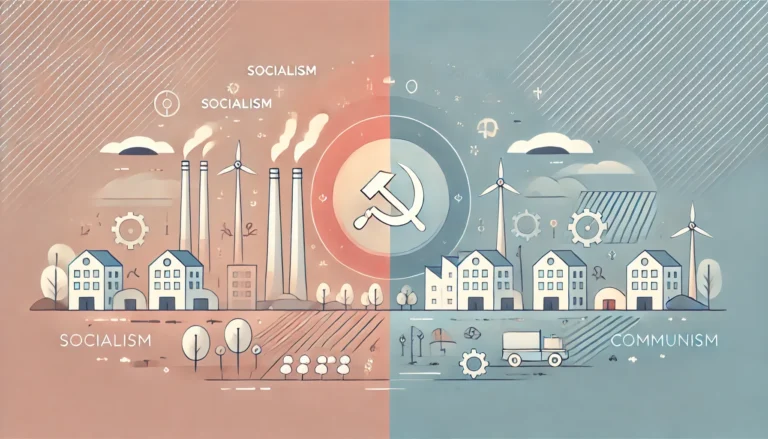Political Efficacy Definition: What you need to know
Introduction
Political efficacy is a fundamental concept in political science that plays a pivotal role in democratic societies. It serves as a critical measure of how well citizens feel empowered to influence political decisions and engage in civic activities. This article review into the intricacies, exploring its definition, factors that influence it, and its broader impact on democratic participation and voter behavior.
What is Political Efficacy (P.E.)?
Refers to the belief that individuals have the capacity to influence political processes. It consists of two key components:
- Internal P.E. – The belief that one has the knowledge, skills, and abilities to understand and participate effectively in political activities.
- External P.E. – The perception that political institutions and officials are responsive to citizens’ demands and inputs.
P.E. is not merely about understanding political systems but also about feeling confident that participation can yield tangible results.
Why is PE Important in Democracy?
Is crucial for sustaining democratic participation. High levels of P.E. often correlate with active engagement, whether through voting, attending political rallies, or participating in civic duties. Conversely, low P.E. can lead to disengagement, a lack of trust in government institutions, and a decline in voter turnout.
When citizens possess a strong sense of civic duty and P.E., they are more likely to actively engage in political processes, contributing to more representative and effective governance. This civic engagement becomes a self-reinforcing cycle: as citizens participate more, they increase their political knowledge, which in turn strengthens their sense of efficacy and commitment to political processes.

Factors Influencing P.E.
Understanding what drives P.E. helps in fostering a politically engaged society. Some of the key factors include:
- Education and Political Knowledge
- People with higher levels of education generally exhibit higher political knowledge, which enhances their internal political efficacy. Education not only broadens one’s understanding of political institutions and processes but also fosters a greater sense of confidence in navigating these systems.
- Media and Information Access
- In today’s digital age, access to information has become more widespread. Social media, for example, plays a vital role in shaping political attitudes and can enhance or reduce civic efficacy depending on the quality and credibility of the information. Social media platforms can amplify both positive and negative perceptions of political responsiveness.
- Political Socialization
- Political socialization, which refers to the process by which individuals acquire political attitudes and beliefs, is another significant factor. Family, peers, educational institutions, and religious organizations all contribute to shaping an individual’s political efficacy.
- Socioeconomic Status
- Individuals with higher income and socioeconomic status are often more confident about participating in politics, which is reflected in higher levels of both internal and external political efficacy. They are more likely to feel that their political participation matters and can lead to actual change.
- Political Trust and Institutions
- A sense of trust in political institutions is crucial for developing external political efficacy. Citizens who believe that the government is transparent, accountable, and responsive are more likely to feel that their involvement can bring about meaningful changes.
The Impact of Political Efficacy on Voting Behavior
Voter turnout is often seen as one of the clearest indicators of political efficacy. High political efficacy tends to correlate with higher voter turnout, as citizens feel more responsible for exercising their right to vote and believe their vote can make a difference.
- High P.E.: Individuals with it are more likely to engage in voting, attend events, and even run for office. They often have a greater sense of agency, which leads them to advocate for specific policies or candidates actively.
- Low P.E.: On the other hand, those with low level may feel that voting is pointless, as they perceive the system as unresponsive or corrupt. This can contribute to lower voter turnout and a general sense of apathy towards political processes.
Research has shown that voter turnout is not just a reflection of an individual’s political efficacy but also a function of political empowerment within communities. When individuals observe their peers participating in political activities, they often feel more motivated to engage, leading to an increase in overall civic participation.
The Role of Civic Duty in Enhancing P.E.
Civic duty is the sense of responsibility that citizens feel toward participating in the political and civic life of their country. It is often tied to P.E., as individuals who feel a strong sense of civic duty are more likely to vote, attend rallies, engage in political discussions, and even become activists.
Encouraging a strong sense of civic duty among citizens can have significant effects on overall P.E.. Governments, civil society organizations, and educational institutions can all play a role in promoting civic duty through campaigns, educational curricula, and community programs.
How to Measure P.E.
Measuring it can be challenging, as it is inherently subjective. However, researchers often use surveys and questionnaires to gauge both internal and external . Common questions include:
- Do you think you understand political issues well enough to participate in politics?
- Do you believe that elected officials care about what people like you think?
- Do you feel confident about making political decisions?
These measurements can help identify gaps in P.E. across different demographics, guiding efforts to increase civic participation and political empowerment.
Enhancing P.E. through Social Capital
Social capital, or the networks and norms of trust that facilitate cooperation within communities, plays a crucial role in enhancing political efficacy. Communities with high levels of social capital tend to have higher levels of political engagement, as individuals feel a greater sense of solidarity and collective agency.
- Community Programs: Grassroots movements, local councils, and community events often contribute to a sense of political efficacy by providing platforms for citizens to engage with political processes.
- Volunteering and Activism: Volunteer programs and activism not only increase an individual’s internal political efficacy but also improve external efficacy by showing that collective action can yield results.
The Relationship Between Public Opinion and Political Efficacy
Public opinion often shapes political efficacy, as individuals who see their views reflected in public discourse feel more empowered to engage politically. When government policies align with public opinion, citizens are more likely to feel that their participation has had an impact, boosting external efficacy.
However, when there is a significant disconnect between public opinion and government action, it can erode political efficacy. In such cases, citizens may feel that their efforts to participate are futile, leading to decreased engagement and trust in political institutions.
Addressing Low Political Efficacy
Addressing low political efficacy requires a multifaceted approach:
- Improving Political Education: Providing comprehensive education about political systems and processes can help citizens understand how to navigate politics effectively.
- Promoting Transparency: Governments must be transparent and accountable to restore trust and improve citizens’ perceptions of responsiveness.
- Encouraging Community Engagement: Grassroots organizations and civil society groups should encourage community involvement, fostering a sense of political empowerment.
- Leveraging Media for Good: Media outlets should aim to provide accurate information, as misinformation can be harmful by creating distrust and confusion.
Conclusion
Political efficacy is the backbone of democratic participation, influencing everything from voter turnout to broader civic engagement. By understanding its components, factors, and effects, we can work towards a more engaged and empowered citizenry. Encouraging political knowledge, promoting social capital, and restoring trust in institutions are key steps in enhancing political efficacy and ensuring a thriving democracy.





